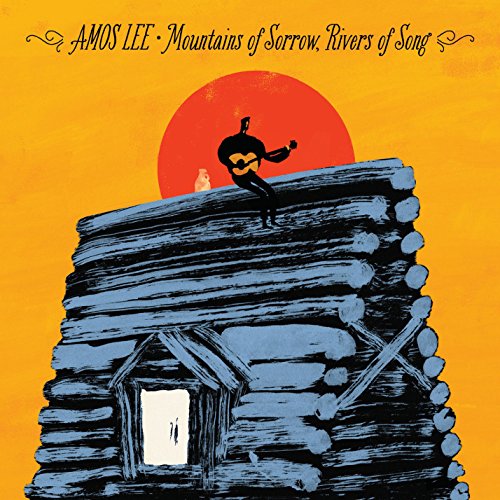
Amos Lee
Mountains of Sorrow, Rivers of Song
Release Date: Oct 8, 2013
Genre(s): Country, Folk, Adult Alternative Pop/Rock, Contemporary Singer/Songwriter, Country-Folk
Record label: Blue Note
Music Critic Score
How the Music Critic Score works
Buy Mountains of Sorrow, Rivers of Song from Amazon
Album Review: Mountains of Sorrow, Rivers of Song by Amos Lee
Fairly Good, Based on 5 Critics
Based on rating 8.1/10
With his dusty voice and populist Americana, more real and current than the more retro-leaning members of the oeuvre, Amos Lee straddles the real estate staked out by Levon Helm, Little Feat and John Prine. In his songs, wonder isn’t wide-eyed, but knowing—and that makes the emotional charge more resonant. His elegiac title track, sweeping dignity in the face of how hard life and respiteful death can be, finds Lee tangling his earthy tenor with Patty Griffin’s wire-and-sky soprano for a plainspoken tribute to those who make it work by their own two hands, confessing as a funeral procession goes by: “And I have a cabin of solitude/ I built it with my own hands, it’s quite crude/ Ain’t much to it, this I know/ But I won’t leave too much behind here when I go/ I’ll be seeking my fortunes, carryin’ on/ Past the mountains of sorry and rivers of song…” That self-reliance is a potent theme.
Based on rating 8/10
Having started out as a soul- and folk-influenced singer/songwriter, the Philadelphia-born Amos Lee has developed over the years into an increasingly rootsy, country-leaning artist. On his fifth studio album, 2013's Mountains of Sorrow, Rivers of Song, Lee delves even further into a lyrical country style on what are some of his most heartfelt songs to date. The album follows up his acclaimed 2011 release, Mission Bell, an album that was also steeped in country influences.
Based on rating 7/10
Singer songwriter Amos Lee has a pleasant and soulful voice. When he sings of the sweetness of life, you can feel his high. When he croons about the pain, the ache comes through clearly, even though in both cases Lee accomplishes this through subtle vocal intonations. It’s the aural equivalent of an arched eyebrow or the wiping of a single tear.
Based on rating 5/10
Lee's fifth album opens with "Johnson Blvd.," a collection of slow-moving images of America's recent economic and social decay. The song sets a dour tone, which is slightly picked up by the ensuing banjo-driven "Stranger," casting Lee back in his familiar role as a lonesome drifter. Unfortunately, it's one he's never been able to pull off convincingly.
Based on rating 2/5
Amos Lee's rustic Americana is no more authentic than the slick pop he's marketed against. If anything, it's often less distinctive, stitched together from melodies so sweet and clichés so noncontroversial that his ramblin'-man protests – times are hard and he's a stranger in this world – dissolve into the sepia-toned air like fine dust. Things pick up on the second half of Mountains of Sorrow, Rivers of Song, when Lee lets some of his manners slide, but only a little bit.
'Mountains of Sorrow, Rivers of Song'
is available now

